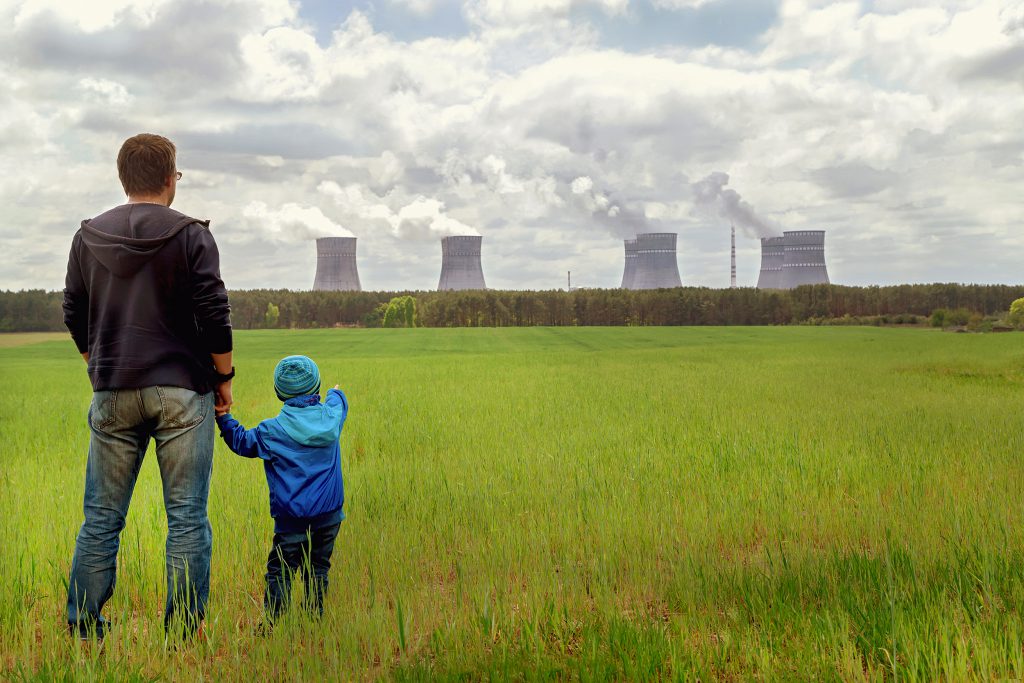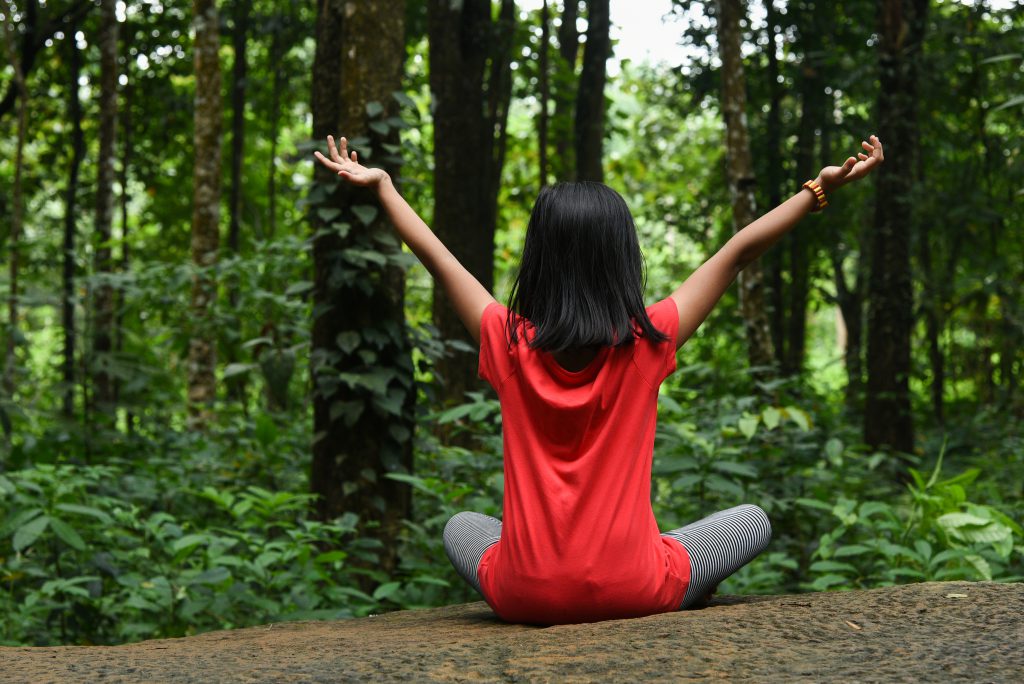“The climate crisis is a child rights crisis.”
– UNICEF, 2021
According to the Children’s Climate Risk Index (CCRI), nearly half of the world’s children ‘are at “extremely high risk” of the impacts of climate change.… And it is happening today.’ (UNICEF, 2021, p. 4). ‘Ecocide’ as a concept, and the demands for it to be incorporated into the Rome Statute, are worth considering when it comes to increasing protection, and ensuring that those responsible for serious damage to the environment can be taken to the International Criminal Court (Jolly, 2021).
What is ecocide?
According to a group of experts in international law, the term ‘ecocide’ applies to ‘unlawful or wanton acts committed with knowledge that there is a substantial likelihood of severe and either widespread or long-term damage to the environment being caused by those acts.’ (Jolly, 2021, Stop Ecocide, n.d.). This evidently includes climate change, while being a broad enough definition to include all destructive acts towards the environment (CBC Radio, 2021).
Finally, ecocide brings about the alteration or even destruction of ecosystems and their components, including oceans, forests, water, air and the earth. How? Through a variety of actions linked to human activity: overfishing practices; oil spills; plastic pollution; deforestation for livestock, agriculture and mining; and industrial contamination of the soil and air (CBC Radio, 2021).
Various repercussions on the children’s rights set out in the Convention on the Rights of the Child
Children constitute a vulnerable group, and are particularly affected by the deadly actions of humans towards the environment. An example of this is air pollution, caused notably by pollutants from motor vehicles and industry (Gouvernement du Québec, 2021).

The main reason why children are particularly vulnerable is that their respiratory system is still developing. As they are smaller in height, they are also closer to pollutants(Israel, 2013, p. 46). In 2016, around 600,000 children died from acute lower respiratory infections caused by polluted air, according to the World Health Organisation (World Health Organisation, 2018).
These effects on health can be related to Article 24 of the Convention on the Rights of the Child, which promotes ‘the right of the child to the enjoyment of the highest attainable standard of health.’ Furthermore, this article compels states to reduce infant mortality and malnutrition. According to the characteristics provided by UNICEF, this requires stable and regular access to food that is available, healthy and accessible. (UNICEF, 2016, p. 1). However, ecocide destroys the earth that feeds us, and climate change accentuates climate risks that have a series of impacts on agriculture, including the destruction of crops and plantations (Action contre la faim, 2020).
Moreover, due to excessive and ‘poorly thought-out’ urbanisation (La rédactionnumérique de France Inter, 2020), along with deforestation and climate change, ecocide has been linked to an increase in natural disasters (La rédactionnumérique de France Inter, 2020; UN Office for Disaster Risk Reduction, 2020; Thiery, 2021). Between 2000 and 2019, natural disasters claimed over 1 million lives and affected a total of 4.2 billion people, leading to US$ 2.97 trillion in economic losses (UN Office for Disaster Risk Reduction, 2020). This has an impact on millions of children’s lives, and, therefore, on the respect and protection of their rights (UNICEF, 2016).
In its 2021 report, UNICEF makes an interesting suggestion: using the Children’s Climate Risk Index (CCRI) to provide ‘the first comprehensive view of children’s exposure and vulnerability to the impacts of climate change’ (UNICEF, 2021, p. 4). This has demonstrated the link between environmental or climate disasters and increased difficulties of access to major essential services, due to the destruction of infrastructure or to the mass migration and population displacement that it causes (UNICEF, 2021, p. 11). This can also create a “vicious cycle of increasing exposures and vulnerabilities” (UNICEF, 2021, p. 11).
Recognition in international law, and the link with protecting and promoting children’s rights
A movement is growing to have ecocide recognised as a crime by the International Criminal Court (CBC Radio, 2021; Jolly, 2021). The Global Assembly is notably pushing for this (Alvarez, 2021). Currently, the International Criminal Court investigates and recognises under its jurisdiction four crimes, ‘the gravest crimes of concern to the international community’ (International Criminal Court, n.d.): war crimes, genocide, crimes against humanity and the crime of aggression (International Criminal Court, n.d.).
The recognition of ecocide by this court would be a historic addition from the perspective of international law, and would show how the global community’s concerns have evolved since the verdicts against the Nazis during the 1945 Nuremberg Trials (CBC Radio, 2021). The law would, as a result, be ‘up to the challenge of the climate’ (Cabanes, 2016, p. 70).
In order to achieve this, 2/3 of the 123 member states would have to vote in favour of the addition (CBC Radio, 2021). This is only one step in the struggle to protect the environment and environmental rights, such as the right to a healthy environment. However, the institution of ecocide as a crime would allow the principle of common but differentiated responsibilities to be made binding (Cabanes, 2016, p. 73)[1]. It would also allow international judges to impose measures in favour of the climate not only on states, but on transnational corporations (Cabanes, 2016, p. 73).
Thus, linking ecocide and the protection of children’s rights seems logical: children, a vulnerable population, suffer the full force of effects linked to the destruction of our blue planet. The effects of ecocide, therefore, threaten the protection of children’s rights and the fundamental values laid out in the Convention on the Rights of the Child.

Ecocide and children’s rights are intrinsically linked, and we must act on all levels to limit climate change and adapt to this new reality. At Humanium, we strongly believe that, in order to protect and promote children’s rights, it is essential to take into account the protection of the environment. If you want to contribute to the construction of a more sustainable world for children, consider making a donation, volunteering or becoming a member.
Written by Juliette Bail
Translated by Alexandra Macpherson
Proofread by Amanda Fearnley
Works cited:
Cabanes, V. (2016, Avril). Reconnaître le crime d’écocide. Revue Projet, pp. 70-73. Récupéré sur Revue Projet. Consultéendécembre 2021.
Thiery, W. (2021, septembre 26). Intergenerational inequities in exposure to climate extremes. Science, pp. 158-160. Consultéendécembre 2021.
[1] Go further: CBC Radio (2021, 9th July). Legal experts push to make ‘ecocide’ an international crime alongside genocide. Retrieved from CBC:https://www.cbc.ca/radio/asithappens/ecocide-international-criminal-court-law-definition-1.6096774; Cabanes, V. (2016, April). Reconnaître le crime d’écocide. Revue Projet, pp. 70-73. Retrievedfrom Revue Projet.


